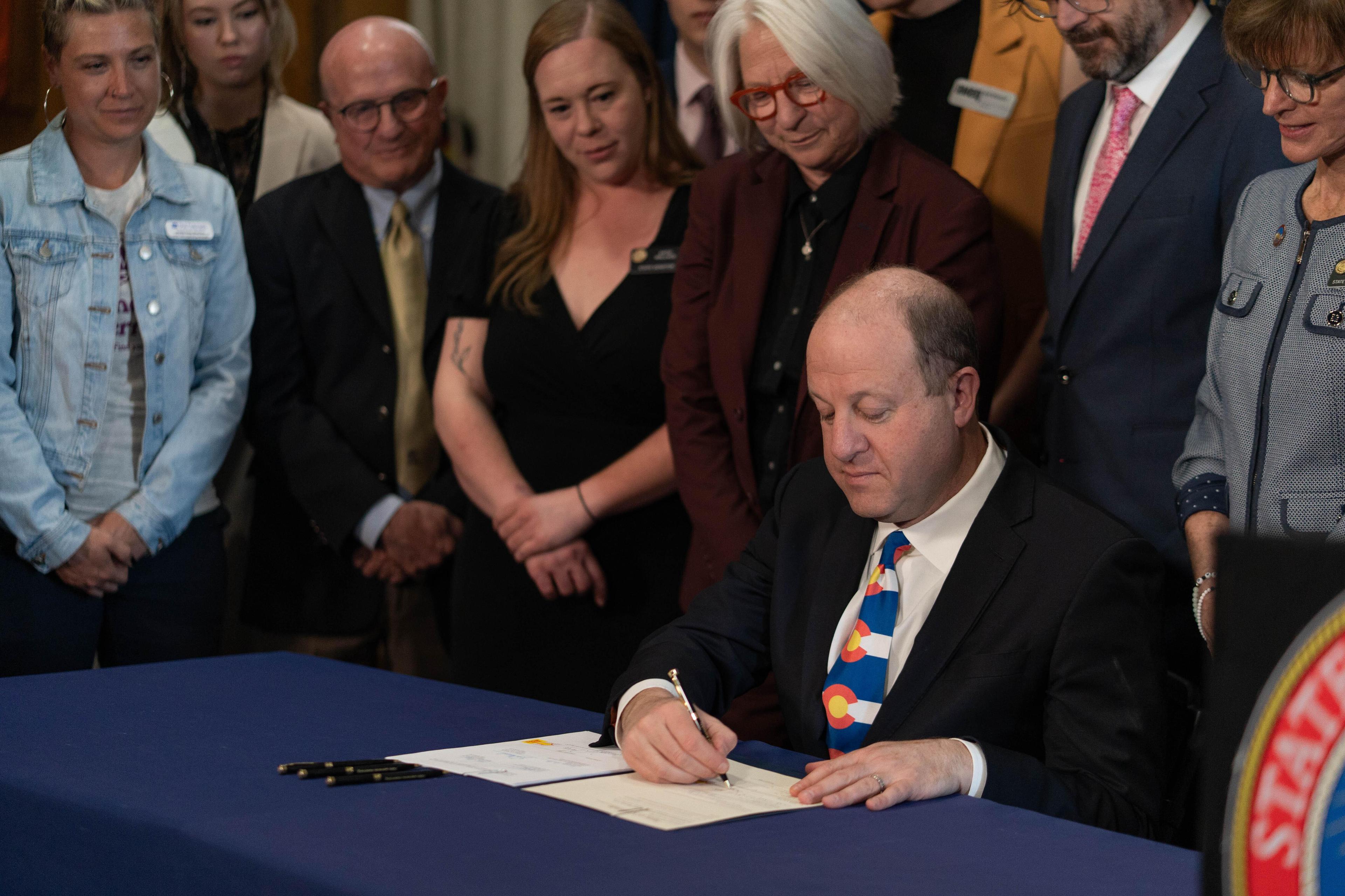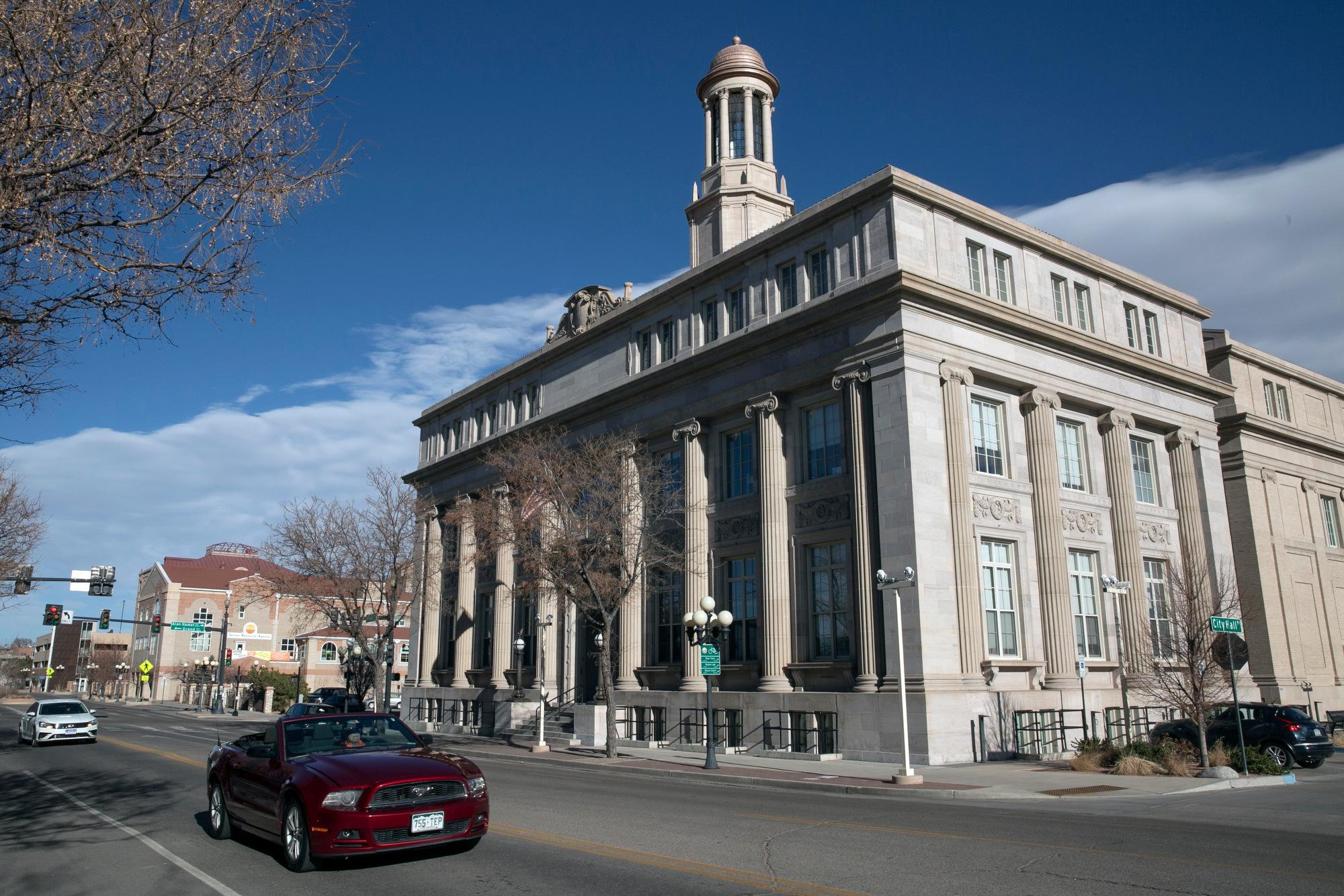
Nearly two years after committing Colorado to a massive reduction in greenhouse gas emissions, Gov. Jared Polis has a plan to make it happen.
On Thursday, the governor’s office released a final “roadmap” to achieve the goals in the state’s 2019 climate action plan. The legislation calls for a 26 percent reduction in emissions by 2025 and a 50 percent reduction by 2030. Those targets are measured against Colorado’s 2005 emissions.
“This is by far the most ambitious and expansive planning document that Colorado has ever produced on climate change,” Polis said. “And as we pursue this work, we also must ensure that our efforts promote racial equity and economic justice.”
A rapid shift to renewable energy drives a policy schedule
To hit those goals, the roadmap lays out a schedule for new regulations and legislation set to affect almost every sector of Colorado’s economy, including transportation, oil and gas production and buildings.
The roadmap also further codifies Polis’ larger strategy on climate change. Unlike other blue-state governors, Polis has resisted plans that would set a cap on emissions and fine companies for exceeding limits. The most notable example is California, which passed a “cap-and-trade” law to enforce reductions in 2006.
Instead, the Polis administration has sought to pass policies tailored for specific industries. The approach has prompted lawsuits and criticism from leading environmental groups like the Environmental Defense Fund, but the roadmap shows his administration doesn’t plan to change course.
“It’s the right approach for Colorado,” Polis said. “It will lock in emission reductions and cleaner air — and does it in a way that will position Colorado at the center of the clean energy economy.”
At the heart of the roadmap is a rapid shift to renewable energy. Colorado’s largest utilities have all committed to reducing their emissions 80 percent by 2030, often through promises to retire coal power plants earlier than expected. Over the next few years, the roadmap says those companies will work with state air and utility regulators to finalize those plans and codify them into law.
Other policies are designed to take advantage of a cleaner grid. The roadmap calls for new legislation to encourage drivers to buy electric cars and building owners to switch to electric heating. According to the roadmap, the oil and gas industry can also expect further regulations to reduce methane leaks, a potent greenhouse gas.
All together, models included in the report predict the current policies will get the state halfway to its 2030 emissions goal. It claims the additional policies, like rules to encourage public transit and work-from-home options, should get the state the rest of the way — or further.
Activists worry the plan does not include enough of the concerns of Coloradans of color and low-income residents
Environmental groups panned a September draft of the roadmap for a lack of detail. While the latest version includes a timeline for concrete policies, some activists said the roadmap doesn’t do enough to help low-income communities.
Renee Millard-Chacon, an educator and community activist from Commerce City, said the main problem is the roadmaps’ timing. Besides ordering new emissions policies, Colorado’s plan also calls for an “equity framework” to identify communities most affected by climate change and bring them into the policymaking process.
While the roadmap is now finalized, a draft of that framework is expected next month.
Millard-Chacon said that means policymakers failed to include ideas from her community in Commerce City. The largely Latino suburb north of Denver has long suffered from the impacts of industrial pollution, which she says has shown her neighbors a need for local air monitoring and greater fines for polluters.
“There are ways to heal these spaces if community leaders bring in people who have been harmed the most,” Millard-Chacon said.
Jamie Valdez, an environmental activist in Pueblo, agreed the state should do more to get low-income Coloradans involved.
“Gov. Polis, I give him credit for his bold ambitions. I just feel like there could be more focus on frontline communities,” Valdez said.
When asked about inclusion around the roadmap, Polis said many environmental justice groups provided input on the draft version of the policy outline. He added the roadmap includes details on the upcoming climate equity framework, which will further ensure frontline communities have a seat at the table.
Democratic state Rep. Dominique Jackson, who represents Aurora and originally sponsored Colorado’s climate goals, added lawmakers also have a role to play as they carry out the roadmap during this year’s legislative session.
“As a Black woman whose lived experience includes often being just left out of the conversations that impact my life, I have a visceral understanding that real environmental justice means truly giving voice and individual power to everyone,” Jackson said.
Editor's Note: A previous version of this story said Democratic state Rep. Dominique Jackson represented Denver. She represents Aurora.








